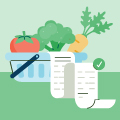 Policy brief describing SuperSNAP, a Food is Medicine program in NC. Starting in September 2019, the SuperSNAP program enrolled individuals with diet-related health conditions receiving Supplemental Nutrition Assistance Program (SNAP) benefits in nine federally qualified health centers across North Carolina. SuperSNAP participants received $40 per month to spend on fresh, frozen, canned, or dried fruits and vegetables without additives at a participating NC-based chain retailer with around 500 stores across North Carolina. This policy brief includes reflections from surveys with consumers, NC retailers, and healthcare providers on the success of the SuperSNAP program.
Policy brief describing SuperSNAP, a Food is Medicine program in NC. Starting in September 2019, the SuperSNAP program enrolled individuals with diet-related health conditions receiving Supplemental Nutrition Assistance Program (SNAP) benefits in nine federally qualified health centers across North Carolina. SuperSNAP participants received $40 per month to spend on fresh, frozen, canned, or dried fruits and vegetables without additives at a participating NC-based chain retailer with around 500 stores across North Carolina. This policy brief includes reflections from surveys with consumers, NC retailers, and healthcare providers on the success of the SuperSNAP program.
Other Resources

In addition to our fact sheets and maps, we have a growing collection of additional resources that include diagrams and infographics from various publications and presentations, video abstracts, and country-specific information sheets and letters of support.
Please contact us if you have questions or contributions regarding a particular resource or if you would like to use one or more of our resources in your work.
![]() The Global Food Research Program's comments submitted in response to the USDA Food and Nutrition Service's proposed updates to foods provided through the Special Supplemental Nutrition Program for Women, Infants, and Children (WIC).
The Global Food Research Program's comments submitted in response to the USDA Food and Nutrition Service's proposed updates to foods provided through the Special Supplemental Nutrition Program for Women, Infants, and Children (WIC).
![]() The Global Food Research Program submission to World Health Organization’s public consultation on draft guidelines on fiscal policies to promote healthy diets
The Global Food Research Program submission to World Health Organization’s public consultation on draft guidelines on fiscal policies to promote healthy diets
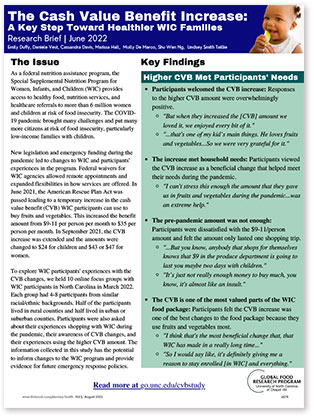 Policy brief summarizing findings from a study about WIC participants’ experiences with changes to the program’s cash value benefit for buying fruits and vegetables during the COVID-19 pandemic. Researchers sought to understand WIC participant perceptions of this change and barriers and facilitators to using the CVB.
Policy brief summarizing findings from a study about WIC participants’ experiences with changes to the program’s cash value benefit for buying fruits and vegetables during the COVID-19 pandemic. Researchers sought to understand WIC participant perceptions of this change and barriers and facilitators to using the CVB.
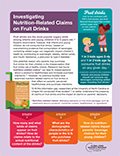 Fruit drinks (fruit-flavored beverages that contain added sweeteners) are the most popular sugar drink among infants and young children, despite expert recommendations that this age group should not consume any drinks with added sugar. This Fact sheet summarizes findings from three studies that examined nutrition claims made on fruit drink packages and how claims impact parents’ decisions.
Fruit drinks (fruit-flavored beverages that contain added sweeteners) are the most popular sugar drink among infants and young children, despite expert recommendations that this age group should not consume any drinks with added sugar. This Fact sheet summarizes findings from three studies that examined nutrition claims made on fruit drink packages and how claims impact parents’ decisions.
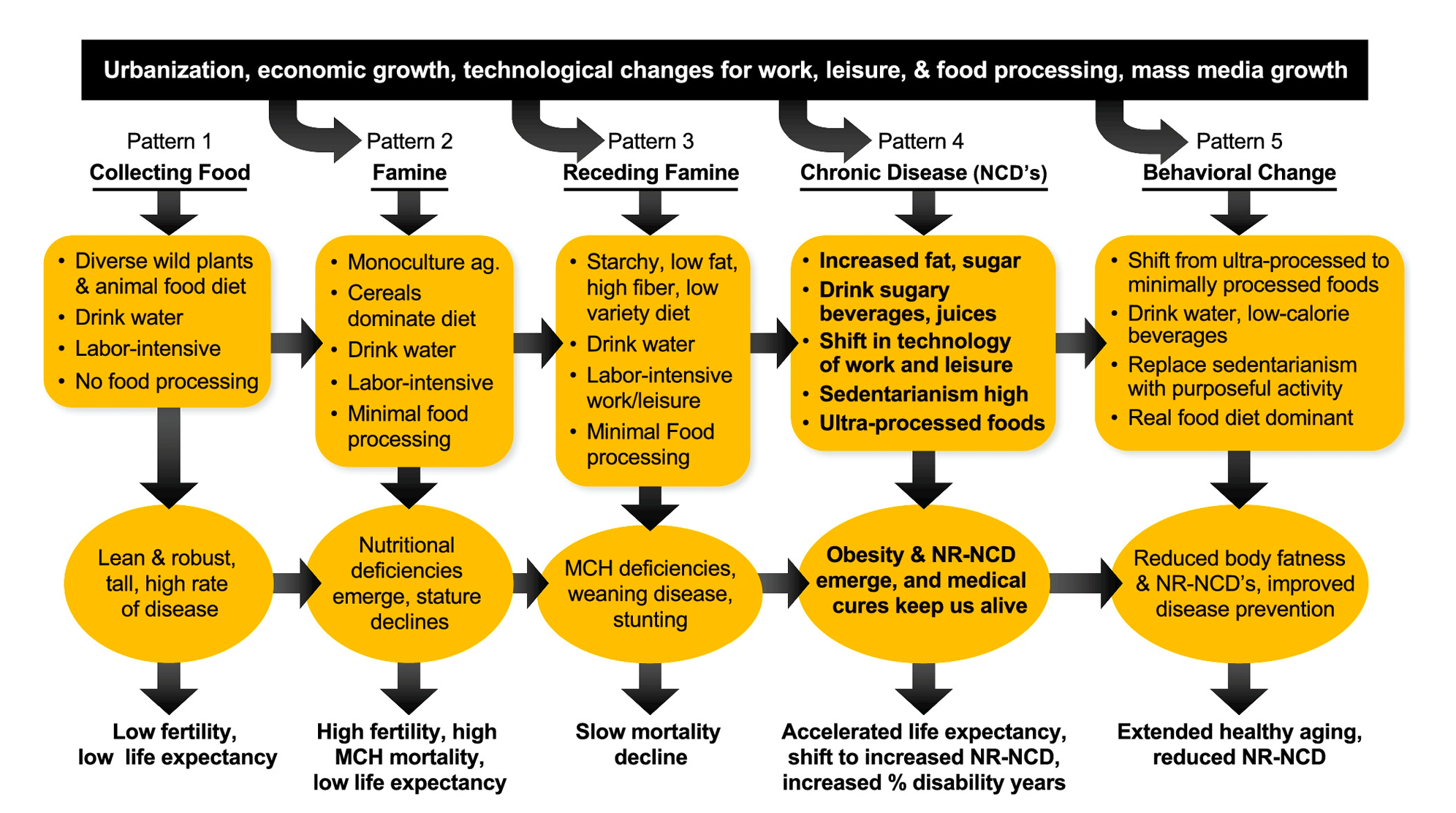 Diagram outlining the five phases of the Nutrition Transition and their associated dietary and activity patterns.
Diagram outlining the five phases of the Nutrition Transition and their associated dietary and activity patterns.
© Barry M. Popkin, 2021
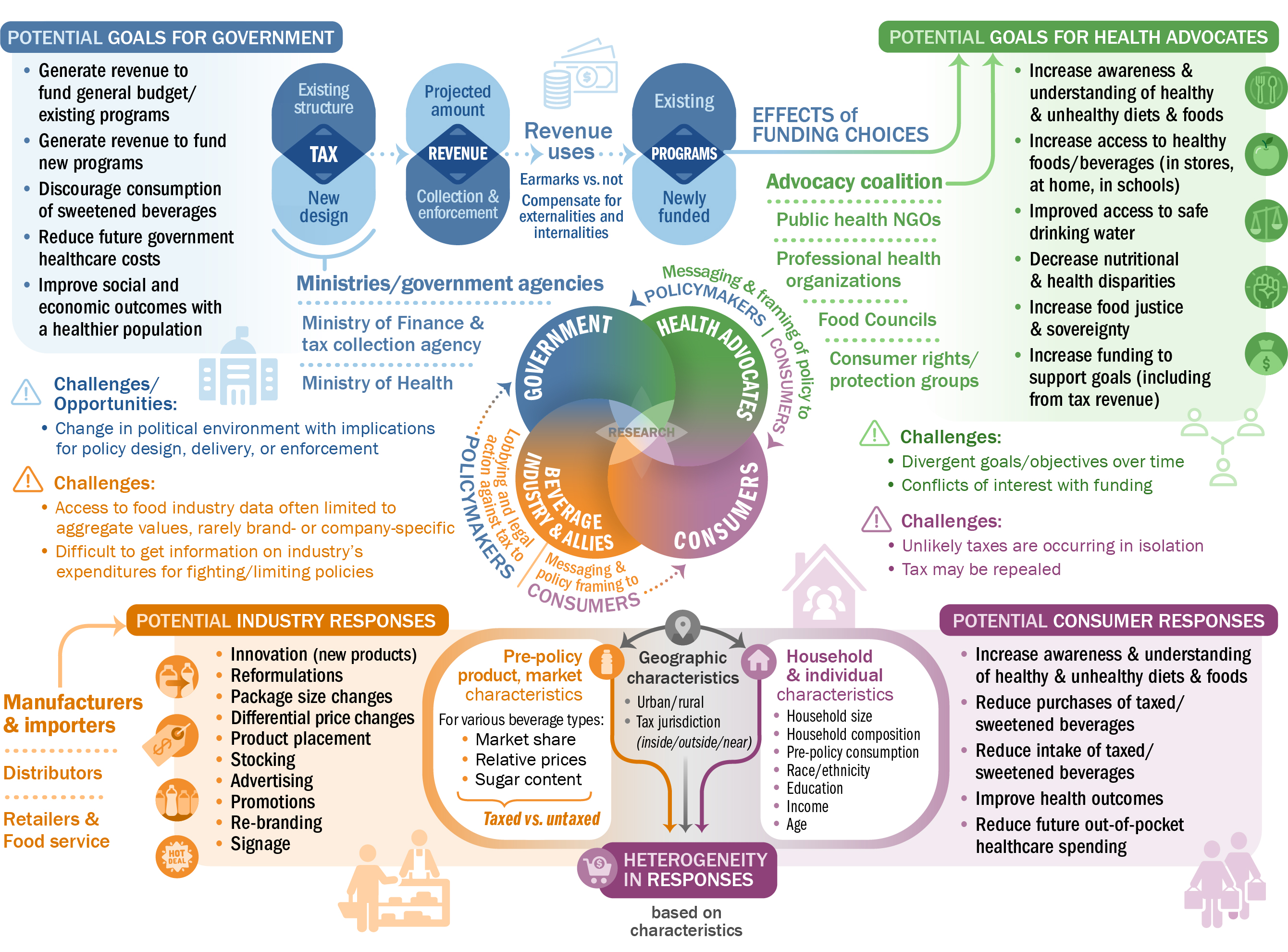 Diagram depicting the relationships between stakeholders’ interests (governments, health advocates, consumers, and industry), their potential responses to sweetened beverage taxes, and measurable outcomes for evaluations.
Diagram depicting the relationships between stakeholders’ interests (governments, health advocates, consumers, and industry), their potential responses to sweetened beverage taxes, and measurable outcomes for evaluations.
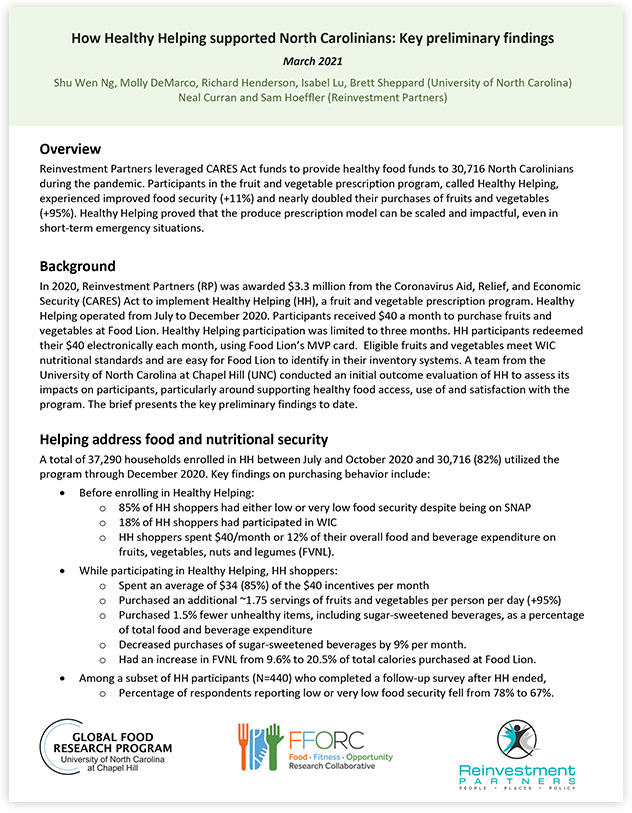 During the COVID-19 pandemic, Reinvestment Partners leveraged CARES Act funds to provide over 30,000 North Carolinians with money for buying healthy foods. Participants in the Healthy Helping fruit and vegetable prescription program experienced improved food security and nearly doubled their purchases of fruits and vegetables, demonstrating that the produce prescription model can be scaled and impactful, even in short-term emergency situations.
During the COVID-19 pandemic, Reinvestment Partners leveraged CARES Act funds to provide over 30,000 North Carolinians with money for buying healthy foods. Participants in the Healthy Helping fruit and vegetable prescription program experienced improved food security and nearly doubled their purchases of fruits and vegetables, demonstrating that the produce prescription model can be scaled and impactful, even in short-term emergency situations.
November 2017 (also available in Spanish)
October 2016, addresses the burden of obesity, why tax sugary drinks, & countering food industry claims